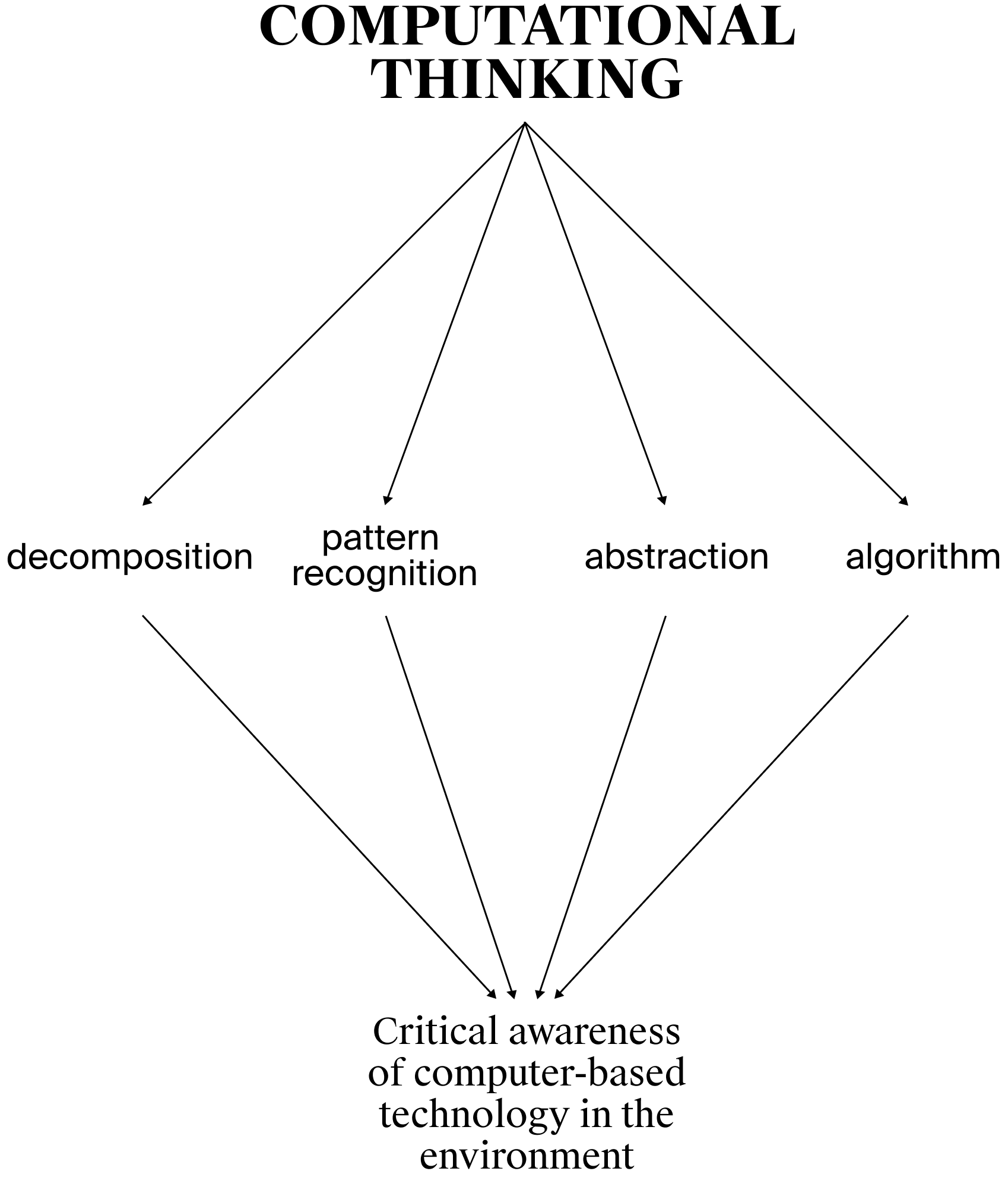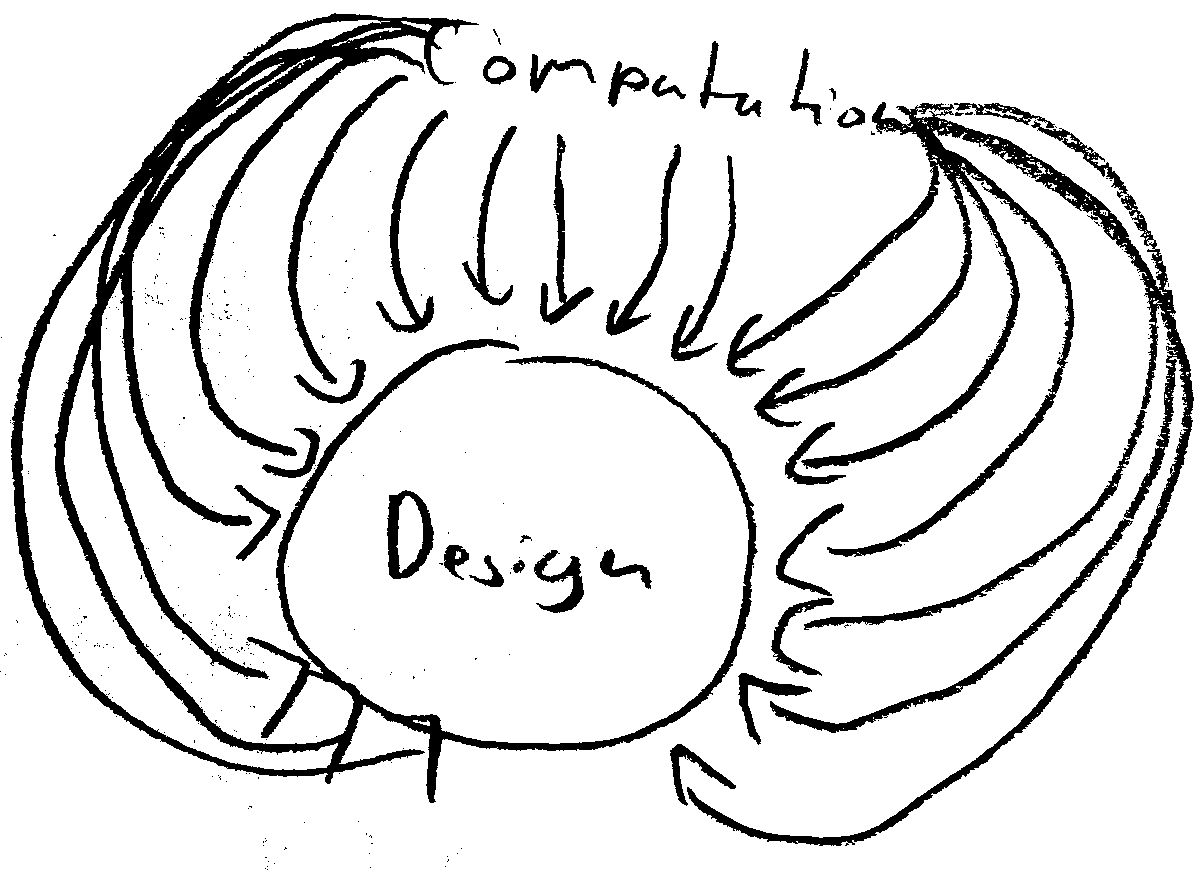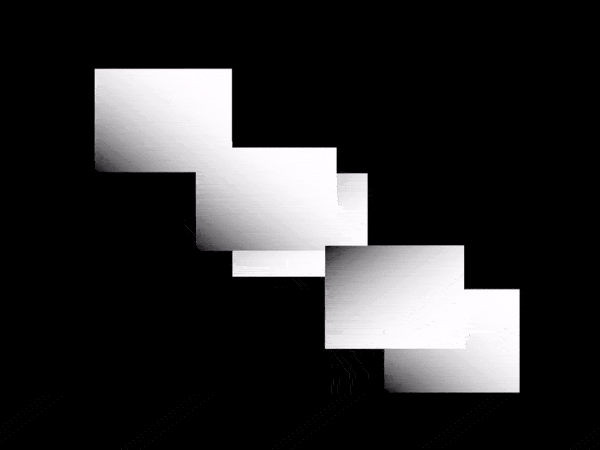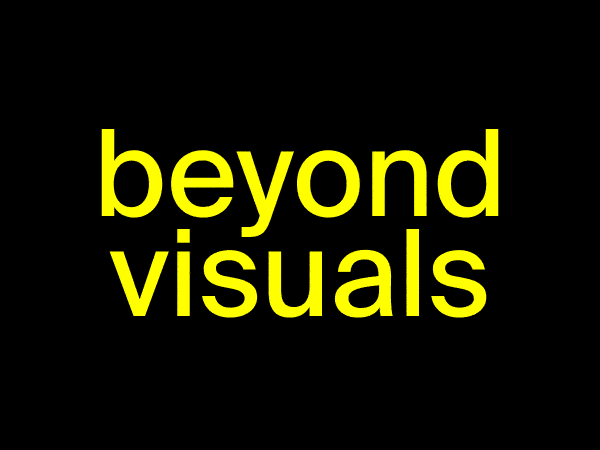Creative Coding as a Chance

Note: This article is also available in German.
Odyssey
One of my most distinctive character traits is probably my enthusiasm – with all the associated advantages and disadvantages. Its advantage is that it enables me to act proactively and motivates me to familiarize myself with new topics without external pressure. Its disadvantage, on the other hand, is that it always causes me to make a certain thinking error, which not infrequently leads to long detours and protracted odysseys: When I start something that excites me, my euphoria is all too often accompanied by naiveté.
I think everybody in this country should learn how to program a computer, should learn a computer language, because it teaches you how to think.
Steve Jobs: The Lost Interview (2012), , (6. 4. 2022).
When I started working with creative coding, I thought it would be the solution to many complex problems. I received very positive feedback for my work in the form of comments and likes on social networks, and early on I received requests from renowned universities for teaching assignments, lectures and workshops. I was undoubtedly stuck in a confirmation bias, a loop of endless affirmation for my work.
I had a clear opinion on the question of what role programming, or creative coding, should play in the academic education of future generations of communication designers: I saw the need to fundamentally renew design education. To the point where code as a tool should be on an equal level with typography. PAGE magazine summed up this position when, after an interview, they half-correctly quoted me as saying, in favor of a resounding headline, “Only programming designers are up to the challenges of the future.” The online article and especially the headline were controversially discussed in social media.
At the end of 2020, I published a video essay entitled Creative Coding Manifesto 2021, in which I tentatively even put Creative Coding in the light of the solution to fundamental problems in our education system. I answered the question of how we could make young people more reflective about the increasingly complex technologies in our lives with an impassioned plea for Creative Coding.
In retrospect, this description certainly resonates with much of my aforementioned naiveté. Seen from today’s perspective, I was perhaps not completely wrong, because there are plausible scientific positions that point in the same direction. In 2005, Georg Trogemmann and Jochen Viehoff already saw artistic programming as a method for the cultural reflection of technology and even pleaded for programming to be understood as an elementary cultural technique alongside reading, writing and math, which they would certainly also locate in school education (Vgl. Georg Trogemann, Jochen Viehoff: code@art. Eine elementare Einführung in die Programmierung als künstlerische Praktik. Wien 2005, Seite 10.). This idea was later formulated even more frequently by prominent personalities.
Doubts
Of course, I also dealt intensively with the counter-positions to these ideas. The study Designing Design Education by the IF Design Foundation, for example, argues that academic design education in the Bologna format is too time-constrained to integrate complex technical topics such as programming into the curriculum. Furthermore, said study sees the life cycles of technologies today as too short, so that a curriculum at the technical cutting edge would require permanent restructuring processes. Their argument suggests that technical knowledge (software skills) is now available free of charge via the Internet and students can easily and effectively acquire this knowledge through self-study (l. IF Design Foundation: Designing Design Education. Weissbuch zur Zukunft der Designlehre. Stuttgart 2021. S. 73). According to the report, it should be primarily thinking tools and methods that are taught in design studies.
In the only four years between the start of studies and graduation, technology and society change extremely dynamically. That’s why designers need to be trained as thinkers.
IF Design Foundation: Designing Design Education. Weissbuch zur Zukunft der Designlehre. Stuttgart 2021. S. 73, translated with Deepl. com
So should we keep programming out of the design curriculum after all? Well, it’s not quite that simple in my eyes, provided that one recognizes that programming is far more than just a technical tool.
Computation as an unknown country
Suppose there was a foreign country whose culture we wanted to study, but which was completely foreign to us. The key to first understanding this culture is logically the language. By speaking with the residents, by tracing their writings and thoughts, we might gain insights into their culture. The land John Maeda speaks of in his book How to Speak Machine is called “Computation.” It is the land of computers. The language spoken here is code and without knowing this language, according to Maeda, both the culture of the country and the way of thinking of its inhabitants remain closed to us (Vgl. John Maeda: How to speak Machine. Computational thinking for the rest of us. New York City 2019, S. 12.).
Crucially, computation is not a land we can travel to and from. Rather, it is a parallel reality that has and will continue to have an unimaginable impact on our physical living environment.
Whether designers or not, we have all been moving in the land of computing for many years now, and the questions for a culture of computation could hardly be more urgent given the progress of artificial intelligence, robotics, blockchain technology, or virtual realities. But how do we put ourselves in a position to discuss computation appropriately? Do we really need to learn to read and write code for this, as described by John Maeda? After all, we need to understand how an inhabitant of Computation, a single computer, thinks.

Computational Thinking
Computational thinking is a term that is used in many ways and does not yet have a universal meaning (Vgl. Siu-Cheung Kong, Harold Abelson: Computational Thinking Education. Berlin 2019, S. 41.). In pedagogy, for example, it is used to refer to certain methods of thinking that stem from the way computers work, including decomposition, pattern recognition, abstraction, and algorithmic thinking (gl. Siu-Cheung Kong, Harold Abelson: Computational Thinking Education. Berlin 2019, S. 41.).
James Bridle uses this term in his book New Dark Age to describe a negative tendency that leads people to think and act like machines, leading to cultural breakdown (Vgl. James Bridle: New Dark Age. Der Sieg der Technologie und das Ende der Zukunft. München 2019, S. 12.). If Bridle’s computer thinking were a likely product of learning programming languages, it would certainly be advisable to discourage it.
Design and art in the post digital era
The questions surrounding the role of programming in design education have occupied me intensely for several years. Through my research and numerous discussions with students, teachers and designers, I have found a point of orientation again after my odyssey, which has ultimately led me back to the vicinity of my original stance.

Nothing currently has a greater influence on design than computerization (Vgl. John Maeda: How to speak Machine. Computational thinking for the rest of us. New York City 2019, S. 12.). I think we creative people should say goodbye to the paradigm of the designer as creator of beautiful forms. Instead, our work should not be limited to the decoration of surfaces in view of the rapid technologization of our living environment, but should also face up to the great responsibility for what is hidden beneath these surfaces.
The potential of a design concept that boldly accepts the complexity of technology as a challenge lies in the promising prospect of not only decorating the digital sphere, but also rethinking and designing it. But to do this, we need a canon of technologies, methods, and tools that is as consistent as possible and that can serve as a solid foundation for the education of artists and designers in the 21st century. As a teacher at various universities, I have found great chaos here, which has confused and demotivated students to the highest degree.
All technologies in the information sphere are made of the same stuff, code. It is complex and it is foreign. But it is the key to reflecting on the digital. That’s why, in my opinion, creative coding should have its rightful place in the foundation of communication design education.
Computation is made by us, and we are now collectively responsible for its outcomes.
John Maeda: How to speak Machine.
This article is a translation of a German text that is part of my master thesis. I am aware that the article still contains some formal inaccuracies in translation and citation. I will take care of cleaning up the citations and improving the translations as soon as possible.
Related
 A Call for Coding Designers
A Call for Coding Designers
This is a call for coding designers. It aims to serve as a proposal and a provocation for creative work […]
 A reflection on Processing Community Day Copenhagen 2023
A reflection on Processing Community Day Copenhagen 2023
I’ve been travelling a lot in the last few months. Still, it was only during a short stay in Copenhagen […]
 What Creative Coding can teach you beyond crafting visuals
What Creative Coding can teach you beyond crafting visuals
Learning to code has had a bad reputation for ages. Many people have the impression that it’s all about acquiring […]
 How I built myself a Digital Garden
How I built myself a Digital Garden
It was a red hot day in July 2023 when I met Alex Muñoz for breakfast in the morning at […]
 Digital Impact @ Disseny Hub
Digital Impact @ Disseny Hub
A few days ago, I visited the Disseny Hub in Barcelona to see the exhibition “Digital Impact”. On the website, […]
 Demystify Technology – A kind of Manifesto
Demystify Technology – A kind of Manifesto
A Fortunate Look into the Spam Folder When I opened my email program on an ordinary workday in the morning […]
 Thoughts on Artificial Intelligence
Thoughts on Artificial Intelligence
Photo: Vyběr Socky What a ride! I’m sitting in the room of a luxury hotel in Prague, once again packing […]
